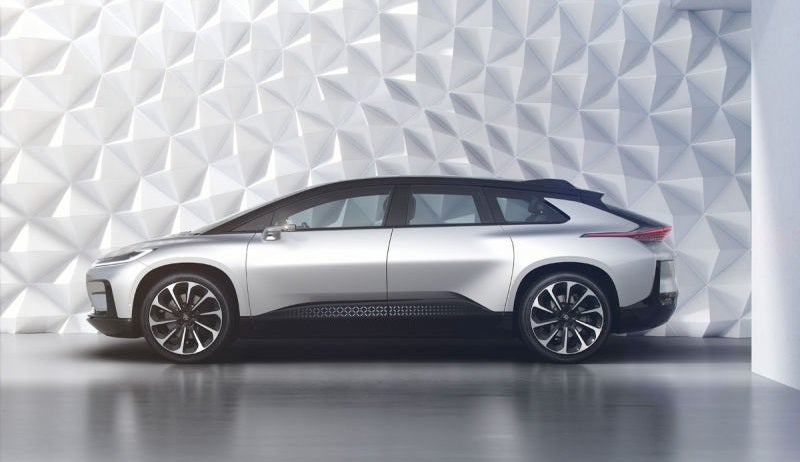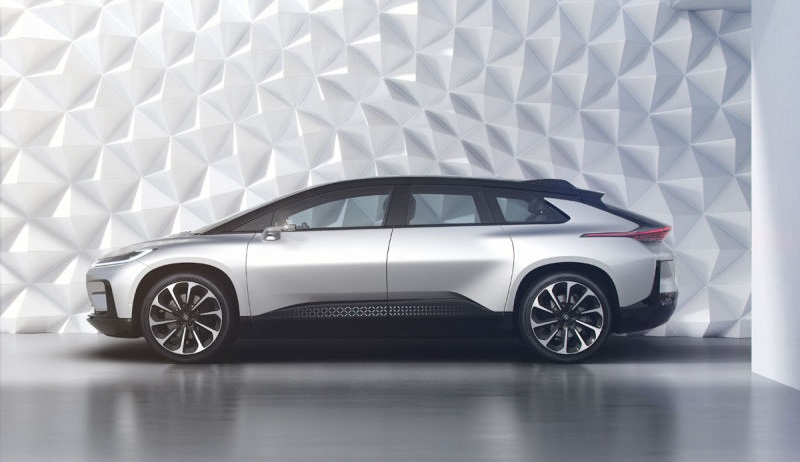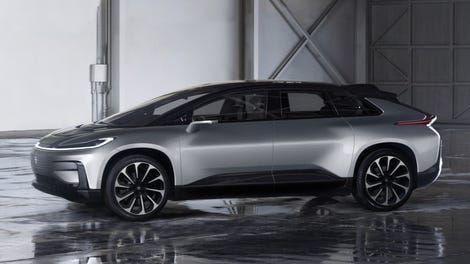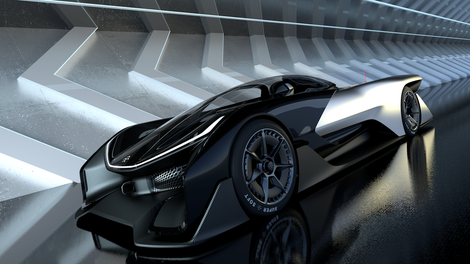
What ambitious but troubled startup Faraday Future showed off in Las Vegas will be, if it reaches production, one of the most advanced personal vehicles the world has ever seen. But that’s a huge if, just as it’s highly questionable whether its wonderful features like LIDAR and self-parking and supercar-slaying speed will ever become a production reality either.
A year ago at CES, Faraday Future was lambasted for making huge promises and then delivering a halting, awkward presentation of a supercar-like concept that was never meant for production. This year the presentation was still halting and awkward at times, and after months of promising a real, production car at CES, FF brought us just elements and shades of one.
Advertisement
Advertisement
They came close, but they’re not there yet.
If nothing else the FF 91 is probably an accurate and compelling preview of things to come in the automotive industry, whether driving enthusiasts like it or not.
Unbound by the need for an internal combustion engine, it’s a big, streamlined, minivan-like vehicle to maximize space. It’s electric and autonomous, with the intended ability to park itself, which we saw demonstrated both successfully and unsuccessfully. It includes tech to customize the driving and riding experience to each user’s preferences, and integrates with your phone in ways that will make them feel one and the same with each other.
Sponsored
And it’s fast, too, with a zero to 60 mph time of just 2.4 seconds, although one has to wonder what’s the point of an obscenely fast car that’s mostly meant to be ridden in and not driven.
At the same time, all we saw on stage tonight were things we’ve seen before on some level. Tesla has redefined how fast electric cars can be. Bigger and denser batteries seem to come out all the time. Everyone’s getting into the big, sleek minivan game. The personalized tech isn’t too far off from what we have now. And an autonomous Audi A7 parked itself four years ago—a BMW 7 Series will do so right now, though not quite as energetically. What FF seemed to show off was just bigger, and yet somehow supposedly better, and in one place.
Advertisement
FF again was thick on buzzwords too. This time, it was almost hard to keep track of all the ways the company would create “a new species,” bring “Day One of new era of mobility,” show that “the car industry has to be replaced,” and promise an end to traffic and congestion and air pollution. “Multifaceted disruption,” they called it, because we as a society have moved beyond the era where words mean things. FF is going to “re-format the future,” which is disconcerting when you realize that deletes everything, too.
And once more, the company and its car were met with considerable skepticism and snark from the automotive press, which, despite running almost entirely on graft is accustomed to seeing finished, drivable products from companies with vast production and distribution networks. It will take more than parking demos and 0-60 runs to win over those critics, and I suspect a good many members of the car-buying public as well after tonight.
Advertisement
The key thing to remember is that this is a vehicle from a company that does not have a factory at the moment. It’s been sued by its parts suppliers as insiders fear the promised money from China may dry up. In the past few months, it has hemorrhaged executives and engineers. It has no means to actually sell these things, and only vague notions of ride-sharing as a business model. Plus, its exact relationship with its principal backer, “Chinese Netflix” billionaire Jia Yueting, or his own electric autonomous startup car company Le Eco, remains unclear.
This is not to say that newcomer companies should be discouraged from entering the car market, or that there’s no potential to innovate better than established, entrenched players can. This feels like a more legitimate car company than the one we saw last year, but that bar is admittedly low. At CES in 2017, Faraday Future probably hasn’t yet convinced many people yet that it’s for real.
Advertisement
You can put a $5,000 deposit down soon on your Faraday Future car for deliveries it says will begin in 2018. Pricing has not been announced.
















